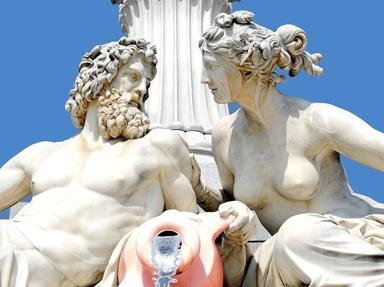Quiz Answer Key and Fun Facts
1. There are many herbs that are called 'Herbs of Love'. This one is known as Tulsi in Hindi.
2. An old French saying says
"____ helps the nerves and by its powerful might
Palsy is cured and fever put to flight".
Which herb completes the saying?
3. Which herb did the ancient Greeks believe prevented the unwanted side effects of heavy consumption of alcohol?
4. Which herb is associated with the Greek god Hades?
5. Dew of the Sea is a herb associated with the Virgin Mary. What is it more commonly known as?
6. This herb featured prominently in the lives of Egyptian slaves who were constructing the pyramids. Which herb am I describing?
7. How many Sacred Saxon Herbs were there?
8. Medieval knights used to wear a symbol of a bee and a sprig of thyme. What was this a symbol of?
9. Which herb is compared with manna in the Bible?
10. Which herb did Prometheus use to carry fire back to mankind?
Source: Author
cyberhen
This quiz was reviewed by FunTrivia editor
CellarDoor before going online.
Any errors found in FunTrivia content are routinely corrected through our feedback system.
